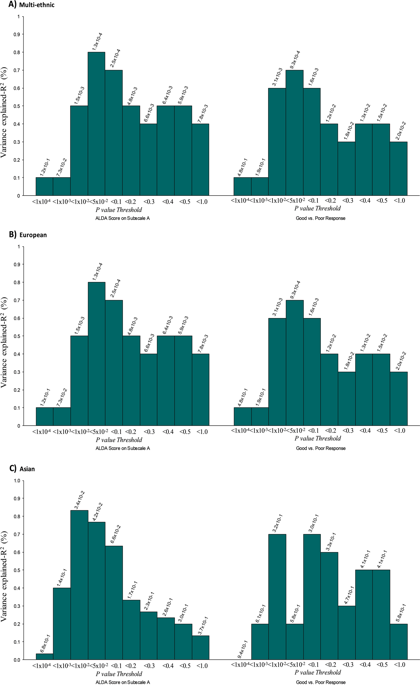Molecular Psychiatry ( IF 9.6 ) Pub Date : 2020-03-16 , DOI: 10.1038/s41380-020-0689-5 Azmeraw T. Amare, Klaus Oliver Schubert, Liping Hou, Scott R. Clark, Sergi Papiol, Micah Cearns, Urs Heilbronner, Franziska Degenhardt, Fasil Tekola-Ayele, Yi-Hsiang Hsu, Tatyana Shekhtman, Mazda Adli, Nirmala Akula, Kazufumi Akiyama, Raffaella Ardau, Bárbara Arias, Jean-Michel Aubry, Lena Backlund, Abesh Kumar Bhattacharjee, Frank Bellivier, Antonio Benabarre, Susanne Bengesser, Joanna M. Biernacka, Armin Birner, Clara Brichant-Petitjean, Pablo Cervantes, Hsi-Chung Chen, Caterina Chillotti, Sven Cichon, Cristiana Cruceanu, Piotr M. Czerski, Nina Dalkner, Alexandre Dayer, Maria Del Zompo, J. Raymond DePaulo, Bruno Étain, Stephane Jamain, Peter Falkai, Andreas J. Forstner, Louise Frisen, Mark A. Frye, Janice M. Fullerton, Sébastien Gard, Julie S. Garnham, Fernando S. Goes, Maria Grigoroiu-Serbanescu, Paul Grof, Ryota Hashimoto, Joanna Hauser, Stefan Herms, Per Hoffmann, Andrea Hofmann, Esther Jiménez, Jean-Pierre Kahn, Layla Kassem, Po-Hsiu Kuo, Tadafumi Kato, John R. Kelsoe, Sarah Kittel-Schneider, Sebastian Kliwicki, Barbara König, Ichiro Kusumi, Gonzalo Laje, Mikael Landén, Catharina Lavebratt, Marion Leboyer, Susan G. Leckband, Alfonso Tortorella, Mirko Manchia, Lina Martinsson, Michael J. McCarthy, Susan L. McElroy, Francesc Colom, Marina Mitjans, Francis M. Mondimore, Palmiero Monteleone, Caroline M. Nievergelt, Markus M. Nöthen, Tomas Novák, Claire O’Donovan, Norio Ozaki, Urban Ösby, Andrea Pfennig, James B. Potash, Andreas Reif, Eva Reininghaus, Guy A. Rouleau, Janusz K. Rybakowski, Martin Schalling, Peter R. Schofield, Barbara W. Schweizer, Giovanni Severino, Paul D. Shilling, Katzutaka Shimoda, Christian Simhandl, Claire M. Slaney, Alessio Squassina, Thomas Stamm, Pavla Stopkova, Mario Maj, Gustavo Turecki, Eduard Vieta, Julia Veeh, Stephanie H. Witt, Adam Wright, Peter P. Zandi, Philip B. Mitchell, Michael Bauer, Martin Alda, Marcella Rietschel, Francis J. McMahon, Thomas G. Schulze, Bernhard T. Baune

|
Lithium is a first-line medication for bipolar disorder (BD), but only one in three patients respond optimally to the drug. Since evidence shows a strong clinical and genetic overlap between depression and bipolar disorder, we investigated whether a polygenic susceptibility to major depression is associated with response to lithium treatment in patients with BD. Weighted polygenic scores (PGSs) were computed for major depression (MD) at different GWAS p value thresholds using genetic data obtained from 2586 bipolar patients who received lithium treatment and took part in the Consortium on Lithium Genetics (ConLi+Gen) study. Summary statistics from genome-wide association studies in MD (135,458 cases and 344,901 controls) from the Psychiatric Genomics Consortium (PGC) were used for PGS weighting. Response to lithium treatment was defined by continuous scores and categorical outcome (responders versus non-responders) using measurements on the Alda scale. Associations between PGSs of MD and lithium treatment response were assessed using a linear and binary logistic regression modeling for the continuous and categorical outcomes, respectively. The analysis was performed for the entire cohort, and for European and Asian sub-samples. The PGSs for MD were significantly associated with lithium treatment response in multi-ethnic, European or Asian populations, at various p value thresholds. Bipolar patients with a low polygenic load for MD were more likely to respond well to lithium, compared to those patients with high polygenic load [lowest vs highest PGS quartiles, multi-ethnic sample: OR = 1.54 (95% CI: 1.18–2.01) and European sample: OR = 1.75 (95% CI: 1.30–2.36)]. While our analysis in the Asian sample found equivalent effect size in the same direction: OR = 1.71 (95% CI: 0.61–4.90), this was not statistically significant. Using PGS decile comparison, we found a similar trend of association between a high genetic loading for MD and lower response to lithium. Our findings underscore the genetic contribution to lithium response in BD and support the emerging concept of a lithium-responsive biotype in BD.
中文翻译:

双相情感障碍患者重度抑郁症多基因评分与锂反应的关联
锂是治疗双相情感障碍 (BD) 的一线药物,但只有三分之一的患者对该药物有最佳反应。由于有证据表明抑郁症和双相情感障碍之间存在很强的临床和遗传重叠,因此我们研究了双相情感障碍患者对重度抑郁症的多基因易感性是否与锂治疗的反应相关。使用从 2586 名接受锂治疗并参加锂遗传学联盟 (ConLi + Gen) 研究的双相情感障碍患者获得的遗传数据,在不同 GWAS p值阈值下计算重度抑郁症 (MD) 的加权多基因评分 ( PGS)。来自精神病基因组学联盟 (PGC) 的 MD 全基因组关联研究(135,458 例病例和 344,901 例对照)的汇总统计数据用于 PGS 加权。对锂治疗的反应是通过使用Alda量表测量的连续评分和分类结果(有反应者与无反应者)来定义的。分别使用线性和二元 Logistic 回归模型评估 MD 的 PGS 与锂治疗反应之间的关联,以评估连续结果和分类结果。该分析针对整个队列以及欧洲和亚洲子样本进行。在不同的p值阈值下,MD 的 PGS 与多种族、欧洲或亚洲人群的锂治疗反应显着相关。与多基因负荷高的患者相比,MD 多基因负荷低的双相情感障碍患者更有可能对锂反应良好[最低与最高 PGS 四分位数,多种族样本:OR = 1.54(95% CI:1.18–2.01)欧洲样本:OR = 1.75 (95% CI: 1.30–2.36)]。虽然我们对亚洲样本的分析发现相同方向上的等效效应大小:OR = 1.71(95% CI:0.61-4.90),但这并不具有统计显着性。通过 PGS 十分位数比较,我们发现 MD 的高基因负荷和对锂的较低反应之间存在类似的关联趋势。我们的研究结果强调了 BD 中锂反应的遗传贡献,并支持 BD 中锂反应生物型的新兴概念。











































 京公网安备 11010802027423号
京公网安备 11010802027423号